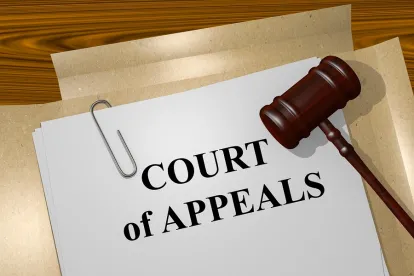The Sixth Circuit’s recent decision in Watkins v. Healy is an interesting read on its own: Ledura Watkins was released after 42 years in prison for a murder conviction that was overturned with the help of the WMU-Cooley Innocence Project. Watkins has now brought a 42 U.S.C. § 1983 civil rights suit against the alleged key players in his conviction, which was based on a single hair and a classmate’s repeatedly recanted testimony. But the opinion also includes some useful pointers on appellate jurisdiction.
First, Watkins serves as a reminder: always consider whether appellate jurisdiction exists—and do so for each issue. Neither party contested appellate jurisdiction in their briefs. But as Judge Moore explained, the court has an obligation to “satisfy ourselves that we have appellate jurisdiction.” Slip op. at 8. Of course, this can be easy in the typical case where appeal follows a final judgment. But this appeal followed the denial of a motion to dismiss so it lives on in the district court. The district court rejected the prosecutor’s absolute immunity defense, and the prosecutor appealed, raising several other issues including a statute of limitations defense.
Did any of the issues on appeal fall within an exception to the final judgment rule? Yes, but only absolute immunity. Absolute and qualified immunity commonly trigger the collateral-order doctrine, which permits appeal from “’that small class which finally determine claims of right separable from, and collateral to, rights asserted in the action, too important to be denied review and too independent of the cause itself to require that appellate consideration be deferred until the whole case is adjudicated.’” Id. at 9. Watkins held that the denial of absolute immunity in this case satisfies that test because it implicates a “’purely legal’” question—“whether the Court’s prosecutorial-immunity jurisprudence applies retroactively to the events underlying Watkins’s suit.” Id. The panel declined to exercise pendent appellate jurisdiction over any of the other five issues in the appeal.
Which bring us to a second helpful lesson of Watkins—the courts of appeals have their own standards for whether to exercise pendent appellate jurisdiction, so out-of-circuit precedent is of limited value. The Watkins panel declined to turn the prosecutor’s absolute-immunity appeal into a “’multi-issue interlocutory appeal ticket,’” even if some other circuits might exercise pendent jurisdiction in similar circumstances. Id. at 11 (quoting Swint v. Chambers Cnty. Comm’n, 514 U.S. 35, 49–50 (1995)).
Watkins explains that, in the Sixth Circuit, pendent appellate jurisdiction may be exercised over “otherwise nonappealable issues that are ‘inextricably intertwined’ with appealable issues.” Id. at 10. That standard means “the nonappealable issue is ‘coterminous with, or subsumed in’ the appealable issue, or, put another way, when ‘[o]ur finding on the first issue necessarily and unavoidably decides the second.’” Id. Watkins further explains: “[B]ecause the circuits differ as to whether pendent appellate jurisdiction should be invoked at all, what the scope of such jurisdiction is, and when it is appropriate to review pendent issues, we follow our own precedent in deciding whether to exercise our discretionary pendent appellate jurisdiction.” Id. at 11 n.20.
So stick first and foremost to Sixth Circuit precedent over pendent jurisdiction—and think twice about a kitchen-sink approach to an interlocutory appeal.




 />i
/>i
